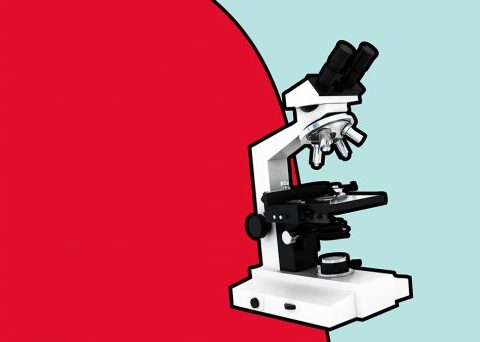 Every time a scientific paper presents a bit of data, an error bar – a quiet but insistent reminder that no knowledge is complete or perfect, accompanies it. The most each generation can hope for is to reduce the error bars a little, and to add to the body of data to which error bars apply.”
Every time a scientific paper presents a bit of data, an error bar – a quiet but insistent reminder that no knowledge is complete or perfect, accompanies it. The most each generation can hope for is to reduce the error bars a little, and to add to the body of data to which error bars apply.”
The above extract from Carl Sagan’s ‘The Demon Haunted World’ explains that by pursuing a career in medical research, one can contribute in minimizing these scientific error bars by elucidating some of the most pressing questions constantly emerging in medicine.
Starting a career in medical research
If you have the intellectual and emotional resilience, also if you wish to contribute to the body of knowledge in medical sciences then you are a right candidate for a career in Medical Research. Devising and conducting experiments, investigating the epidemiological basis of a disease, working in collaboration with a team, ability to question intricate complexities of genome and proteome and effective written and oral communication skills are the chief qualities of an inborn medical researcher. If the following description sounds like you, then you are probably well suited for a career as a medical researcher.
Qualifications to become a medial researcher
The roadmap to medical researcher is complex because it’s a profession that demands distinctive skills and expertise along with mandatory formal education. The simplest formal degree requirement is minimum Masters or a Ph.D. For an outstanding career as a medical researcher, a Ph.D. will help you to go the distance in an academic career.
There is right now an extraordinarily extensive overabundance of post-doctoral partnerships battling for an exceptional set number of lasting scholarly positions. Having said that, accomplishing a PhD in a science subject will stand you in great stead for various research positions.
You can pursue a career in medical research by obtaining a formal education in either biological sciences or medicine however; medicine can broaden your options. Furthermore, after earning a formal education in either biology or medicine, the next milestone towards the development of a career in medical research is participating in a research-based internship. In most graduate schools, participating in a research internship and undertaking a research project is the part of the exclusively designed curriculum. This opportunity will allow you to get a chance to be mentored by a physician or research scientist where you can work in collaboration with the team on the ongoing research project.
In order to escalate to the position of the medical researcher, it is integral to complete an advanced degree program in either science or medicine. According to the US Bureau Labor Statistics (BLS), postgraduates and graduates with dual undergraduate degrees become successful candidates for the job positions.
After completing your advanced education, as a medical researcher you can start your aspiring and a challenging career with entry-level positions of medical research associate. As an associate, you are required to assist a scientist in devising, planning and conducting research trials. You can add something extraordinary to your resume by earning credentials offered to research professionals by regulatory bodies. Credential based certifications are not only going to prepare you for some verifiable skills needed in the career but will also aid you in advancing your career path to medical research.
The job role
As a medical researcher, it is your utmost responsibility to conduct research to improve the health status and longevity of the population. The career revolves around clinical investigations to understand human diseases and rigorous lab work. As a medical researcher, formal education will not suffice. As a developing medical researcher, you need to have effective communication, critical thinking, decision-making, data collecting, data analysing and observational skills. These skill sets will enable you to create a competitive edge in the research industry.
Your interest in scientific exploration and a desire to provide a breakthrough in medical knowledge will help you to explore and solve some unknown mysteries associated with complex diseases.
The New Scientist website (as well as our own) is a great place to find your next job – visit https://jobs.newscientist.com

 Print This Post
Print This Post





